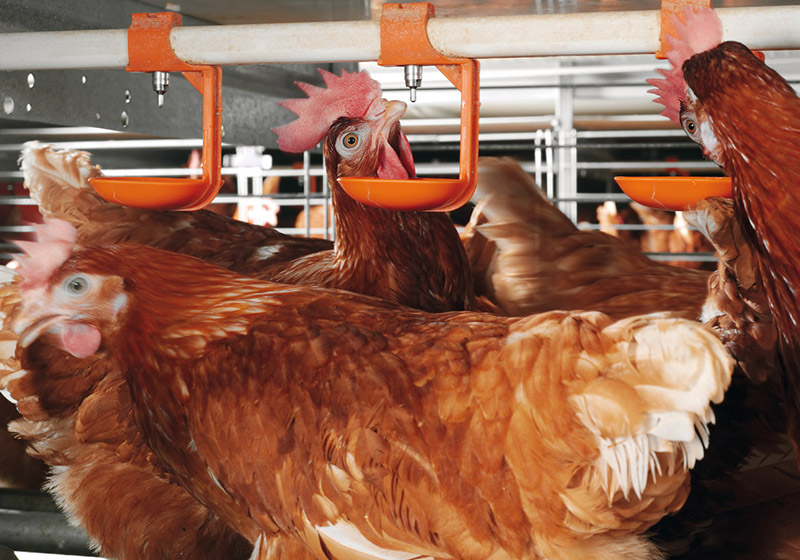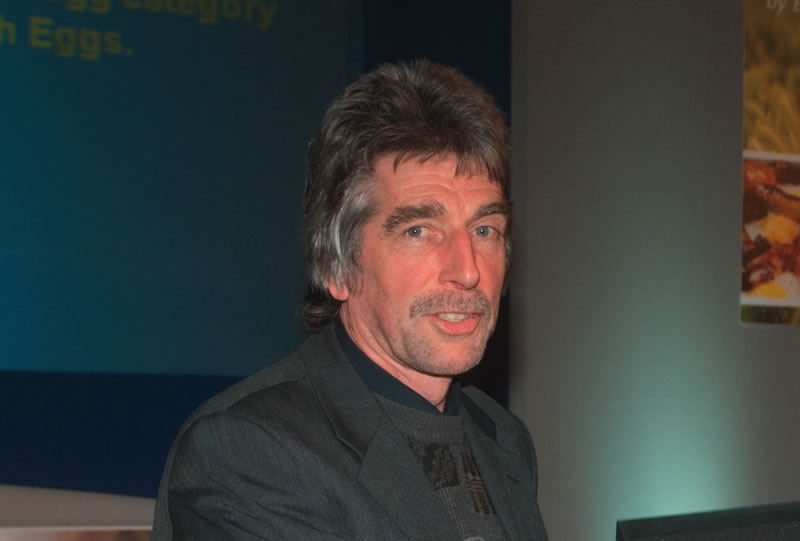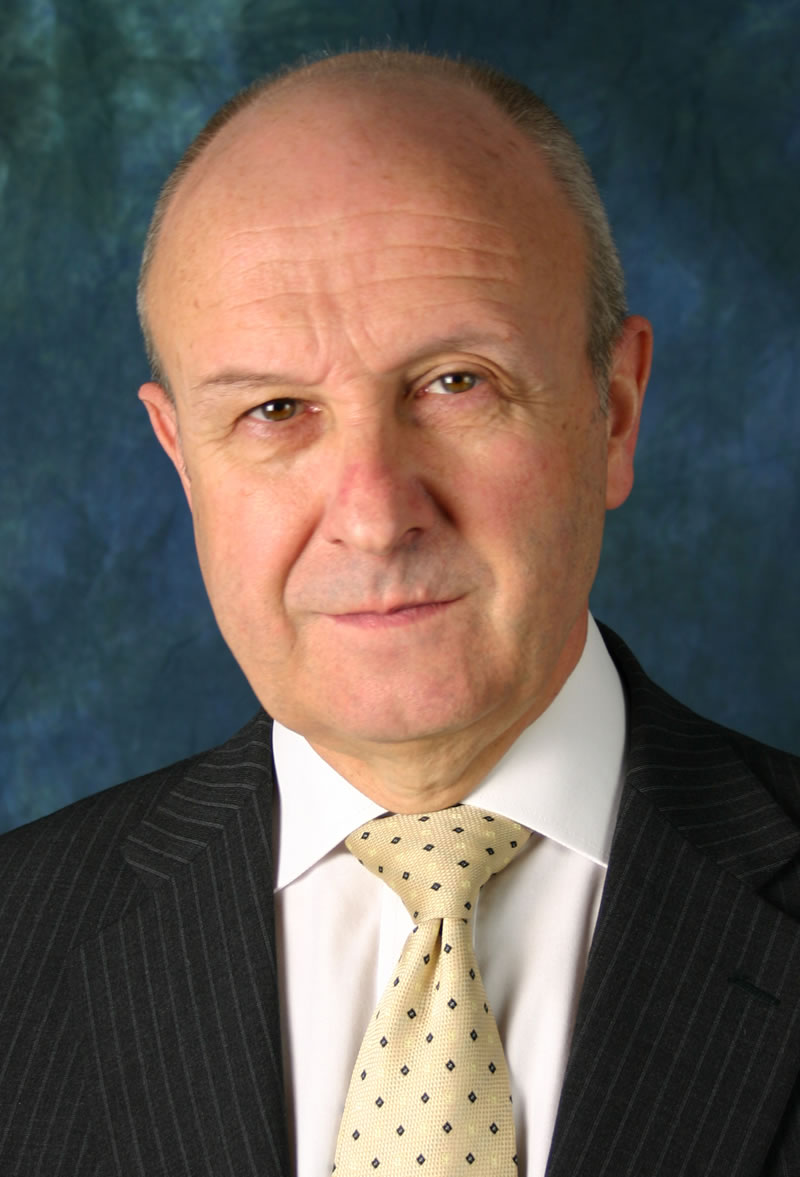
Intensive production offers the highest level of hen welfare, says Elwyn Griffiths, director of Oaklands Farm Eggs and chairman of the British Egg Products Association (BEPA).
Elwyn pressed the case for cage eggs during an intervention at the Egg and Poultry Industry Conference (EPIC) in November. His intervention came after an address to the conference by Derek Lawlor, category director for meat, fish, poultry and eggs with Tesco, and in it he posed the question of how intensive producers could counter welfare group lobbying and convince consumers that intensive farming was the most welfare friendly form of production.
"We have heard that intensive farming is the highest level of welfare for the animals, it has the lowest impact on carbon footprint and everything else," said Elwyn. "Customers want cheap food yet we still have this celebrity status confusing the public. The welfare groups are very good at lobbying," said Elwyn, although he praised Tesco for being "brave enough to stand out when people say you should only have high welfare or what is perceived to be high welfare."
He said, "How do we communicate from farm level to the consumer that sustainable intensification, large scale production, is the highest welfare standard, lowest carbon footprint? How do we communicate to Tesco customers that your value line of eggs will be far superior than the alternative, more expensive ones?"

Derek Lawlor would not be drawn on arguments between the benefits of cage and free range eggs, saying simply that consumers had to be offered a choice. "They have got to be able to buy an everyday product or a finest product if they wish. It doesn't matter what the product is, we should all be able to articulate what the difference is between everyday value and Tesco finest."
However, in response to another delegate later in the conference, Ed Garner, communications director of the retail data analysts Kantar World Panel, said the reality was that images of hens in cages would have an impact on consumers' buying habits. A member of the audience at the conference suggested that hens on the range were less healthy than hens kept inside. Ed Garner said, "Perception is reality with a lot of these things. Show someone a picture of a chicken in a cage and it is emotional. That will carry a lot of weight in a consumer's decision, whether you like it or not," said Ed who said that consumers had shown their willingness to continue buying free range eggs despite the recession. Two thirds of eggs by value in the UK were free range, he said.
The questions over animal welfare raised at EPIC have echoes of claims made by a Dutch professor at the International Egg Commission (IEC) conference in Madrid in April this year. Prof Louise Fresco, a specialist in sustainable development at the University of Amsterdam, said that what the public felt was best for farm animals was not always the case. She said that whilst members of the public felt that pigs should be kept on straw, for example, those with a technical knowledge of the industry knew that straw tended to ferment and cause gases and that it harboured bacteria. "But people don't like to see animals on concrete."
She went on to say that chickens did not necessarily benefit from free range systems. "There is some reasonably good evidence that free ranging chickens are not necessarily animals with lower stress hormones than those in cages," she said. "It is not true that if you increase space you decrease hormones or stress. It is a complicated relationship that has to do with environmental factors in the sense of the growing environment temperature, heat, cold stress, air stress and so on, and feed supply and feed access. If all factors are optimal, animals are probably much better if they are at some degree of density that is higher than free ranging density. This is against what most people believe."

Prof Fresco said that the issue of animal welfare was not going to go away, and she said it was something that was now being raised by the middle classes in emerging countries. However, she said that some of the "romantic myths" about animal welfare needed to be dispelled. Some kind of dialogue needed to be created to align animal welfare with food safety and sustainability.
Logic might suggest that the recession and austerity in the UK may have impacted on demand for free range food, but Ed Garner said that consumers had continued to buy free range eggs despite the squeeze on domestic finances. He told EPIC delegates that discounters like Aldi had been doing particularly well in the UK in recent years - with Aldi's market share up 32 per cent year-on-year, although he said people should not get the impression that the German supermarket group was selling cheap food; it was, in fact, selling quality food cheaply.
Aldi has won acclaim for its welfare standards. The company was presented with the Retailer of the Year award by the British Free Range Egg Producers' Association (BFREPA) for 2010 after increasing free range egg sales by nearly 70 per cent and extending the range of free range eggs on its supermarket shelves. Ironically, the award was collected on behalf of Aldi by Elwyn Griffiths, who is now seeking to convince consumers that the best welfare is achieved by producing eggs intensively.
Ed Garner told EPIC delegates that whilst discounters were gaining market share, many of the established supermarket groups were losing it. Only one of the big four was currently enjoying increased market share - Sainsbury's, a company that was committed to high animal welfare. Ed pointed out that Sainsbury's had been committed for some time to sourcing eggs only from non-cage producers. "Even their cheapest eggs come from non-cage hens," he said.
